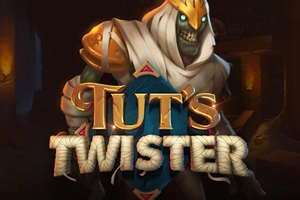Crash games are among the most exciting and fast-paced games in modern online casinos. With rising multipliers and adrenaline-pumping risk/reward mechanics, they attract both casual players and strategic bettors looking for quick hits or consistent profits.
But like any casino game, success in crash isn’t just about timing—it’s about discipline, bankroll management, and smart strategy.
Crash Games Guide: How to Play & Win

What Is a Crash Game?
A crash game is a real-time multiplier betting game. The concept is simple:
- A round begins with a multiplier (1.00x) that increases rapidly.
- Players place bets before the round starts.
- You can “cash out” anytime to lock in your win.
- If the multiplier crashes before you cash out—you lose.
The twist? The multiplier can crash at any moment—even at 1.01x.
How Crash Games Work (Mechanics & Fairness)
- Most crash games (like Spribe’s Aviator, SmartSoft’s JetX, or BGaming’s Space XY) use provably fair RNG systems.
- The crash point is determined before the round starts and cannot be manipulated mid-round.
- Popular multipliers range from 1.01x to over 1000x, but most crashes happen between 1.01x–3.00x.
Best Strategies to Win at Crash Games
Strategy 1: Low-Risk, Consistent Cashouts (1.2x–1.5x)
Cash out early and consistently.
- Bet size: Medium
- Cash out: ~1.2x to 1.5x
- Goal: Win small, often
Why it works: Crash games crash at 1.01x or 1.02x only a small percentage of the time. This strategy minimizes losses and builds steady profit.
Pro Tip: Use auto-cashout to avoid hesitation or emotional decisions.
Strategy 2: High-Risk, Low-Frequency (5x–10x Targets)
Wait for a streak of early crashes, then make aggressive plays.
- Bet size: Small
- Cash out: 5x to 10x+
- Goal: Maximize value from lucky rounds
Why it works: Occasionally, crash games streak high. If you hit 1 in 20 with a 10x payout, you can still profit overall.
Pro Tip: Only use this with disposable bankroll and strict limits. Think of it like progressive slots.
Strategy 3: Martingale or Anti-Martingale Systems
- Martingale: Double your bet after each loss to recover with one win.
- Anti-Martingale: Increase your bet after wins; reduce it after losses.
Caution: Martingale is high-risk and can quickly drain your bankroll. Use only with low bets and crash targets around 1.1x–1.2x.
Strategy 4: Dual Betting (Two Cashout Points)
Some crash games allow multiple simultaneous bets.
- Bet 1: Low-risk, cash out at 1.2x
- Bet 2: High-risk, cash out at 10x+
Why it works: It balances consistency with big-hit potential. Even if the long shot misses, the low-risk bet helps recover.
Bankroll Management for Crash Games
- Use 1–2% of your total bankroll per bet
- Set daily/session win and loss limits
- Avoid chasing losses after a big crash
Example:
- Total Bankroll: $200
- Bet Size: $2–$4 per round
- Session Limit: Stop after +$50 or -$30
Pro Tip: The key to long-term success is survival through variance. Avoid emotional tilt after big losses.
Mental Game & Decision Discipline
Crash is addictive because it tempts you to go “just a little further.” Professionals follow strict mental protocols.
Mental Best Practices:
- Use auto-cashout to eliminate hesitation
- Never change strategy mid-session
- Track results across 100+ rounds, not 5–10
- Take breaks after big wins or losses
Common Mistakes to Avoid
- Greedy cashouts (waiting too long for higher multipliers)
- Doubling bets after every loss with no plan
- Betting without bankroll limits
- Ignoring crash trends and patterns
- Believing in “due wins”—remember, each round is random
Sample Crash Session Plan
Here’s a structured session example for a $300 bankroll:
| Bet # | Bet Size | Target Cashout | Outcome | Action |
| 1 | $3 | 1.5x | Win ($4.50) | Repeat |
| 2 | $3 | 1.5x | Crash @ 1.01 | Repeat with same size |
| 3 | $3 | 1.5x | Win ($4.50) | Up one unit to $4 |
| 4 | $4 | 10x | Crash @ 5.00 | Log result and reset |
Goal: End session after 10 rounds or +$20, whichever comes first.
Top Crash Games to Try
- Aviator by Spribe (most popular crash game globally)
- JetX by SmartSoft (arcade-themed, high-stakes)
- Space XY by BGaming (great visuals, strategic tools)
- Crashout Fireworks by Habanero (high volatility)
- Plinko X Crash by Gamzix (hybrid mechanics)
Final Tips: Win More by Risking Less
Crash games reward consistency, not greed. The best players know how to capitalize on short wins, avoid tilting after losses, and manage their emotions like traders—not gamblers.
Key Takeaways:
- Use auto-cashout and flat bets for stability
- Aim low (1.2x–1.5x) for consistent wins
- Use two-cashout strategies for balanced sessions
- Track data, follow plans, and stop chasing






















